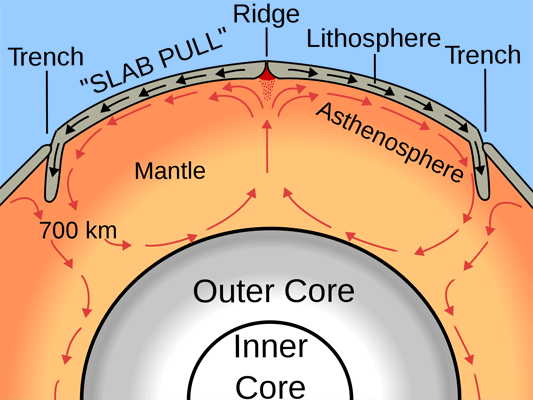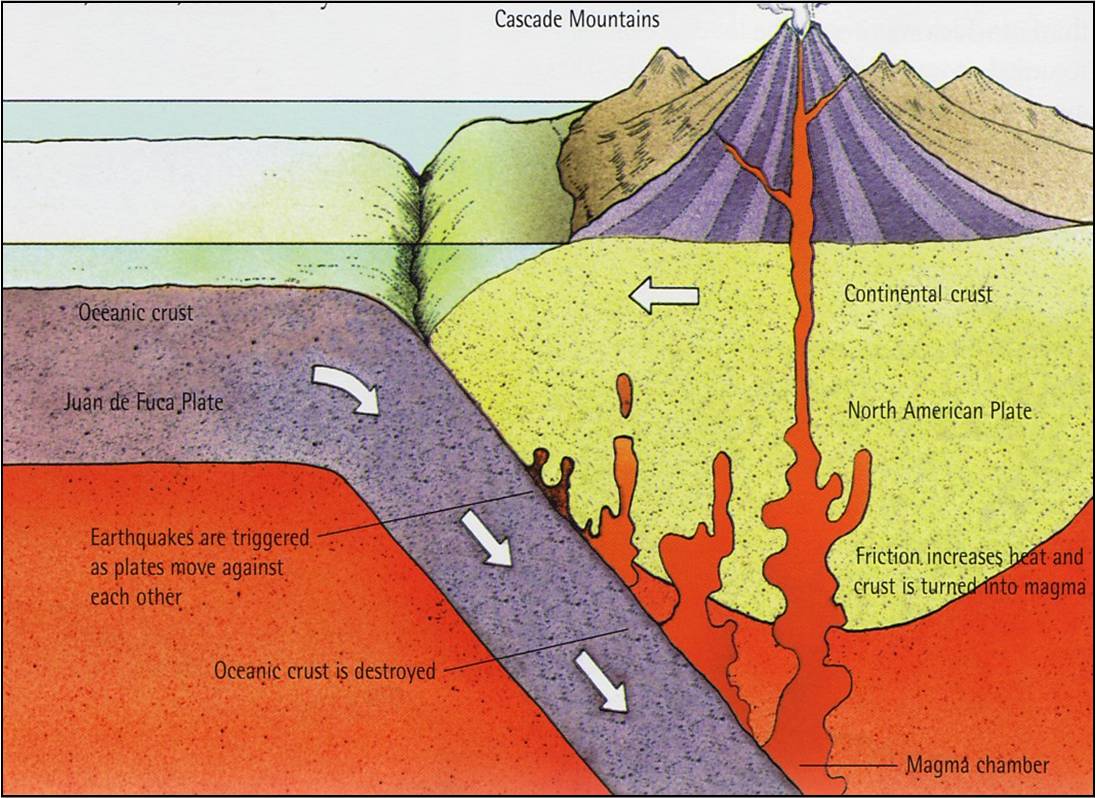How does a convergent boundary occur?
1 Answer
In essence, it is simple: to plates are in relative motion towards each other. The ‘why’ is more complex - please see below.
Explanation:
Plates move due to the movement of magma in the mantle beneath them. They are dragged from below by enormous plumes of semi-solid rock upwelling from the core/mantle boundary (in effect by convection currents.) The heat source for these convection currents is radioactive decay of the unstable (radioactive) nuclei in the core.
A diagram should help (though this one shows a constructive (divergent) boundary in the centre and two destructive (convergent) boundaries at the side):

It is generally true that the plate that descends is the denser of the two, and the one that remains on top is ‘crumpled’ up into a mountain range (called ‘fold mountains’, I believe) that will probably be tectonically active i.e. show both volcanoes and earthquakes. Again, a diagram provides a better picture than my words:

Hope this was of some use, if only to provoke further questions.

